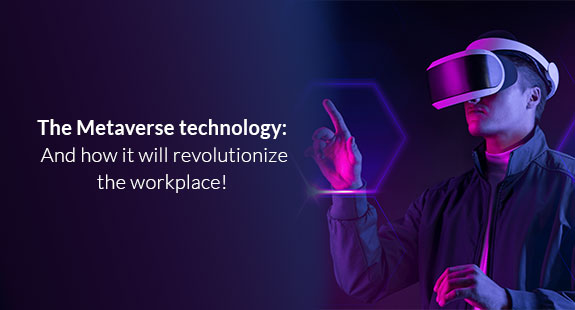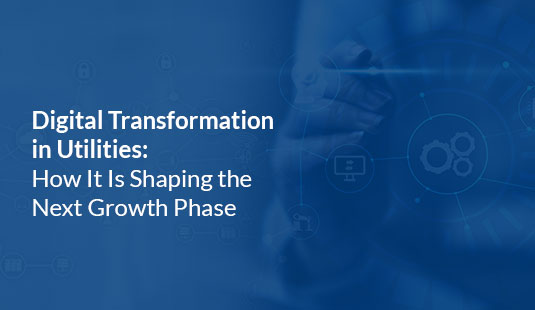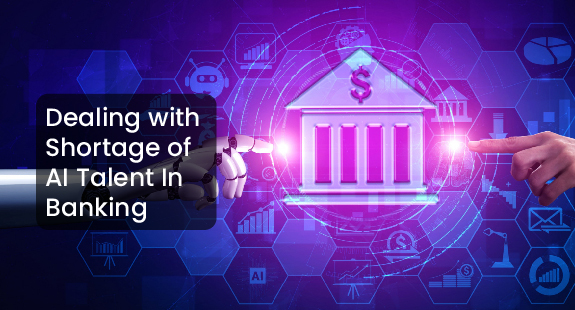The metaverse enigma has taken the business world by storm. The possibilities of what can be achieved through this new “digital world” have left many enthralled and confused. There is an intensifying discussion on how metaverse technology will revolutionize our work and business. While still in its infancy, working in a virtual world created in the metaverse is well on its way to becoming the next big concept for industries. Leading tech companies, including Microsoft, Meta (Facebook), Roblox, Epic Games, and many more, are already building a network of 3D virtual worlds.
Drawing upon a vast collection of metaverse development tools—AI, ML, blockchain, gaming, 3D graphics, and sensors—the technology will enable people to create virtual avatars and interact with colleagues, customers, and friends in custom-built spaces. It will also empower them to design their attire, go shopping, and participate in events, redefining how they work.
Here are some relevant ways
how businesses and people alike can leverage the richness of metaverse technology in the post-pandemic world:

Conferencing
Holograms and avatars will reduce the business costs associated with face-to-face meetings and travel. For example, with its Mesh platform, Microsoft has enabled people to work together from remote locations, akin to sitting in the same meeting room. Mesh enables group members to join a meeting with their 3D avatars or holograms in a virtual space and animates participants’ avatars by following their expressions and movements captured through their webcams. As a user, you can see the person you are conversing with and point at any presentation content or other features of a project the team is working on.
The platform saves time and expenses by organizing a physical presence while allowing the attendees to operate from any location. Besides, virtual avatars are a great tool to promote diversity by empowering everyone to join a meeting, including those who don’t like using their webcams in a session.

Innovative job option
The metaverse continuum will radically alter the nature of existing jobs and provide new work opportunities. Roles that hitherto warranted personal interactions can now get virtual alternatives—think remote tech support on an oil rig. This, among other developments, will boost the gig economy with more remote work and contract-based freelancing opportunities.
For example, a customer’s avatar visiting a virtual duplicate of an appliance store and in need of assistance purchasing a new mobile phone may simply contact a virtual store attendant who works from home. That said, it is vital to understand that the same technology will allow reporting managers to monitor the workforce more comprehensively. They can watch almost everything an employee does during work hours, and companies must regulate such invasion of privacy.

Rich training and learning experiences
Metaverse will create a real value in the virtual world by transforming how companies set up training and skill development workshops by enabling HR to make these processes more cost-effective and result-oriented. AI-enabled virtual trainers can seamlessly support employees at different jobs and even provide feedback. In the metaverse virtual world, any object—a training manual, device, or presentation—can become interactive to offer 3D displays and stepwise guidance on different subjects.
VR simulations and role-play exercises will be common, allowing employees’ virtual versions to learn new skills with game-play situations like a high-pressure sales presentation, dealing with difficult customers, developing self-excellence, and nurturing team lead essentials.

Safer and detailed manufacturing processes
Manufacturing companies can harness metaverse capabilities for more realistic design plans and to address glitches in real-time. Boeing has even declared that it intends to build its next aircraft in the metaverse. Engineers will prototype new systems in the virtual world and use metaverse development tools to examine and test functionality without touching the real hardware.
Organizations can also employ robots and sensors to test applications in the metaverse and mimic their real-world integrations before deploying them in physical environments. In addition, customers can virtually join the product development process from the earliest stages to give their opinions without being exposed to any health and safety risks.

Support for the healthcare industry
Metaverse can empower medical professionals to provide more personalized care to patients by using AR-VR technologies for treatments. Senior doctors may be able to direct precision robots via 5G networks to perform surgeries from remote locations.
The industry has already started implementing the technology. For instance, Bump Galaxy is a virtual world and community for mental healthcare. It is prototyped on Minecraft, an open-world sandbox game, and provides a physiological feel of security and support via gaming to people who suffer from anxiety, depression, and trauma.
Metaverse: Boon or Bane?
The concept of the metaverse is not new, and the first known usage of the term “metaverse” was in 1992 by American author Neal Stephenson in his fiction, Snow Crash. The novel described a fantasy world where governments become largely irrelevant, and countries are replaced by zones run by corporate powers.
Today, when the metaverse technology has arrived, and as in Stephenson’s dystopia, it does not involve governments (yet). Businesses are turning the metaverse into virtual worlds owned and controlled by them. Will it be good or detrimental to employees and society? Will it only support powerful enterprises? The answer would depend on how effectively the metaverse is controlled and harnessed.




